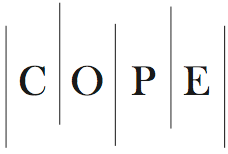About Commodities
Aims
Commodities (ISSN 2813-2432) is an international, peer-reviewed, open access journal that encourages and supports the publication of high-quality research papers in the fields of economics, finance, and commerce, with a specific focus on commodities. This journal aims to provide a global platform for scientists to promote, share, and disseminate research innovations related to commodity markets, trade, and industries.
Commodities primarily publishes original research articles, reviews, and case reports, but welcomes other manuscript types, including short communications and theoretical papers. Overall, this journal places a strong emphasis on empirical, analytical, theoretical, and policy-related work, fostering interdisciplinary perspectives that contribute to academic and policy discussions.
Commodities imposes no restrictions on the maximum length of papers, allowing authors to present their findings in full detail to ensure result reproducibility and methodological robustness.
Scope
The Commodities journal covers a wide range of sectors within the global commodities market, focusing on both traditional and emerging markets. Key areas include the following:
- Energy Commodities: Crude oil, natural gas, gasoline, heating oil, biofuels, carbon emissions, and renewable energy (wind, solar, geothermal).
- Metals: Precious metals (gold, silver, platinum), industrial/base metals (copper, aluminum, steel), and battery/technology metals (lithium, cobalt, rare earths).
- Agricultural Commodities: Grains (wheat, corn), soft commodities (coffee, cocoa, sugar), livestock (cattle, hogs), dairy products, fruits, vegetables, and other agricultural products.
- Cryptocurrencies and Digital Assets: Interconnections between cryptocurrencies (such as Bitcoin, Ethereum, etc.) and traditional commodities, the influence of cryptocurrency markets on global financial systems, and emerging trends in futures and options markets for digital assets.
- Financial Instruments and Derivatives: Commodity indices, futures, options, ETFs, and trading strategies.
- Other Sectors: Fish, weather derivatives, shipping/freight rates, and water rights.
- Commodities Trading & Supply Chains: Research on the mechanisms of commodities trading, including spot markets, futures markets, and supply chain analysis.
- Risk & Real Option Analysis: Geopolitical, economic, and environmental risks affecting commodities, and strategies for managing market volatility.
- Commodities Supercycles: Long-term commodity price trends shaped by technological, supply, demand, and geopolitical factors.
- Commodities & Food Security: Impact of commodity markets on global food security, trade policies, and supply chain resilience.
- Commodities Economics & Finance: Economic modeling, financial analysis, market structures, and investment strategies in commodity markets.
- Commodities Policy: Influence of trade policies, regulations, and government approaches on commodity production and consumption.
- Environmental Impacts and Sustainability in Commodity Sectors: Studies addressing the environmental effects and sustainability measures across commodity markets, including CO2 emissions, resource depletion, and sustainable production practices.
- Sustainable Finance and Blue Finance Mechanisms: Financial innovations supporting sustainable resource management and conservation, such as blue bonds, green finance, and climate finance for commodity sectors.
- Technological Innovations in Commodity Management: Including IoT applications, AI, and data analytics for precision agriculture, resource extraction, and market forecasting in commodity industries.
- Consumer Behavior and Market Dynamics in Food Commodities: Examining shifts in consumer demand, market trends, and the influence of external factors (e.g., COVID-19) on food commodity consumption.
- Climate Change and Resource Management: Studies exploring how climate risks affect commodity production, supply chains, and pricing, particularly in vulnerable sectors like agriculture and mining.
MDPI Publication Ethics Statement
 MDPI is a member of the Committee on Publication Ethics (COPE).
MDPI takes the responsibility to enforce a rigorous peer-review together with strict ethical policies and standards to ensure to add
high quality scientific works to the field of scholarly publication. Unfortunately, cases of plagiarism, data falsification, inappropriate
authorship credit, and the like, do arise. MDPI takes such publishing ethics issues very seriously and our editors are trained to proceed in
such cases with a zero tolerance policy. To verify the originality of content submitted to our journals, we use iThenticate to check submissions against previous publications.
MDPI is a member of the Committee on Publication Ethics (COPE).
MDPI takes the responsibility to enforce a rigorous peer-review together with strict ethical policies and standards to ensure to add
high quality scientific works to the field of scholarly publication. Unfortunately, cases of plagiarism, data falsification, inappropriate
authorship credit, and the like, do arise. MDPI takes such publishing ethics issues very seriously and our editors are trained to proceed in
such cases with a zero tolerance policy. To verify the originality of content submitted to our journals, we use iThenticate to check submissions against previous publications.
Book Reviews
Authors and publishers are encouraged to send review copies of their recent related books to the following address. Received books will be listed as Books Received within the journal's News & Announcements section.
MDPI
Grosspeteranlage 5
CH-4052 Basel
Switzerland
Copyright / Open Access
Articles published in Commodities will be Open-Access articles distributed under the terms and conditions of the Creative Commons Attribution License (CC BY). The copyright is retained by the author(s). MDPI will insert the following note at the end of the published text:
Reprints may be ordered. Please contact publisher@mdpi.com for more information on how to order reprints. Announcements regarding academic activities such as conferences are published for free in the News & Announcements section of the journal. Advertisement can be either published or placed on the pertinent website. Contact e-mail address is commodities@mdpi.com. For further MDPI contacts, see here.Reprints
Announcement and Advertisement
Editorial Office
Contact us


